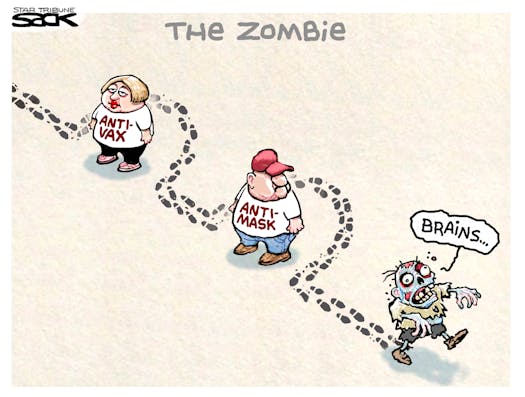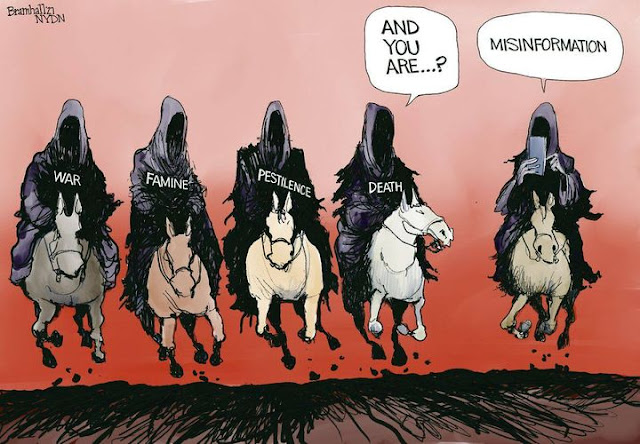Horrors of the Night category archive
Spoiling the System 0
Lindsay M. Chervinsky looks at Donald Trump’s plans to effectively destroy the civil service and replace career civil servants with his dupes, symps, and fellow travelers.
Much more at the link.
Have Cake, Eat It Too 0
Apparently, Texas believes in the “right to life,” except when it doesn’t.
Just go read it. See if you can wrap your brain around it.
I certainly cannot.
Artificial Covert Intelligence 0
At Psychology Today Blogs Steven Hassan, who has spent four decades studying the use of “undue influence” in cults, politics, and relationships, explores the darker potential of AI. A snippet:
We already know that “social” media isn’t.
In view of the “golly gosh gee whiz” attitude with which many are greeting the AI/ChatGPT hype, I think his piece is worth a look.
A Twit Owns Twitter 0
Yet another reason I’m glad I never leaped on the Twitter manure spreader.
A Tale of the Trumpling 0
The Washington Post’s Stephanie McCrummen follows an Alice down the Trumpian rabbit hole.
No excerpt or summary can do this report justice.
Just read it. It is–er–disquieting.
Our Impending Idiocracy 0
David discusses a truly disturbing campaign ad and what it implies about the state of our can-you-still-call-it-a polity. (Warning: Short commercial at the end.)
The Deleteriousness of the Disinformation Superhighway 0
Psychologist Michelle Druin is less that optimistic about the effects of the internet on dis coarse discourse (and, by “the internet,” I think, based on the examples she cites, that she refers primarily to “social” media). She cites five negative effects that she has observed; follow the link for a detailed discussion of each.
- It’s pushing us towards inauthenticity . . . .
- It may be increasing our paranoia . . . .
- It’s making us care too much about what other people think . . . .
- It’s pressuring us to create stage-worthy moments . . . .
- It’s making us want the impossible
All that Was Old Is New Again, Salem Redux 0
I think David misses the point. (Warning: Short commercial at the end.)
I disagree with David that the tax exemption of churches is the issue here. The issue is the simmering brew of manipulative, gullible, and stupid masquerading as faith, of self-styled shepherds whose only purpose is to sheer their flocks.
For a reasonably unbiased discussion of why churches are tax exempt in the U. S., see this article from the archives of the Los Angeles Times.
Seeing Isn’t Believing 0
At Psychology Today Blogs, Belgium’s Ghent University’s Learning and Implicit Processes Lab takes a deep dive into “deep fakes.” A snippet:
Although this new technology has many beneficial uses, it’s also ripe for abuse. Deepfakes are increasingly being used to harass and intimidate political activists, and harm those in the business, entertainment, and political sectors. Female celebrities are being Deepfaked into highly realistic pornographic scenes, while worry grows that politicians could be made to “confess” to bribery or sexual assault. Such disinformation may obviously distort democratic discourse and election outcomes.
___________________
*Follow the link for the link.
Facebook Frolics, Defending the Indefensible Dept. 0
The Zuckerborg is implementing a new Ministry of Truth.
Once again, we are reminded that “social” media isn’t.
We Weren’t There 0
The Rude One watched the New York Time’s compilation video of the January 6 insurrection so you (and I) don’t have to. (Warning: Language.)











